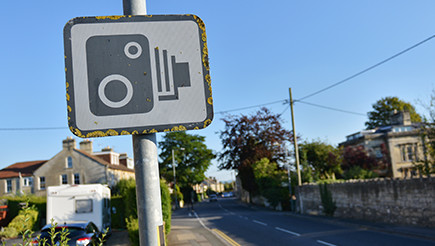An effective driver isn’t just the Formula 1 ace who produces the fastest lap, it’s the everyday hero whose work on the road shows efficiency, control and, most of all, safety.
After all, if you don’t finish the race you don’t get the points (or, more importantly, avoid the points).
1. Question your skills
It’s good to take pride in your clean licence and no-claims bonus, but overconfidence can be a problem. Philip Gomm of the RAC Foundation tells The Telegraph, “The key to safety on the roads is not to be overconfident... Driver error is a factor in almost three-quarters of all crashes.” Questioning your skills and habits once in a while will ensure your skills are honed, so if you’re reading this you’re on the right track.
2. Know your environment
You can only respond to changes in the road and surroundings if you know what to do in each circumstance – and can spot changes as they occur. That means knowing how to behave on country and city roads before you set off, as well as remembering the driving test basics like the two second rule, checking your mirrors and keeping your attention on the road once you’re moving. Distractions, such as checking your mobile, are off limits until you’re safely stopped.
3. Watch the weather
Knowing your stopping distances in sun, rain and snow is vital if you’re to keep the right driving distance from other road users. High winds also make steering tricky, especially for lorries and motorbikes. Check the forecast before you leave to ensure you drive safely and considerately, whatever the weather.
4. Check local speed limits
Speed restrictions vary depending on conditions and dangers specific to the section of road. As well as watching out for road signs, you can tell what the limit is likely to be from other features. For example, built-up areas have a limit of 30mph unless otherwise signposted. Getting this right can be a matter of life and death. This year’s Road Safety Week's message is "slow down, save lives", as speeding is a factor in 23% of fatal crashes in Britain.
5. Rest regularly
Mental downtime is crucial to staying alert. If you don’t take regular breaks, you can suffer from 'cerebral congestion'. And as drivers know, congestion is no fun. The Highway Code recommends a break of at least 15 minutes for every two hours you spend driving. Staying hydrated will also help you stay alert, so keep a bottle of water handy.
6. Create a calm space
If you’re stressed, angry or upset, you can't give your full attention to the road. You should set off in a calm, positive mindset. Improving your in-car environment with nice scents, calming classical music and a tidy space can help. When other road users make an error or drive inconsiderately, the best drivers stay calm and think logically. Overreacting helps no-one.
7. Check for new tech
Our vehicles are offering us more and more support, from assisted braking to parking cameras, and there are always new developments. For example, Intelligent Speed Adaptation helps drivers stick to local speed limits, and is being championed by Road Safety Week 2017. Just remember to check with your insurer before installing new technology, as it may affect your cover.






